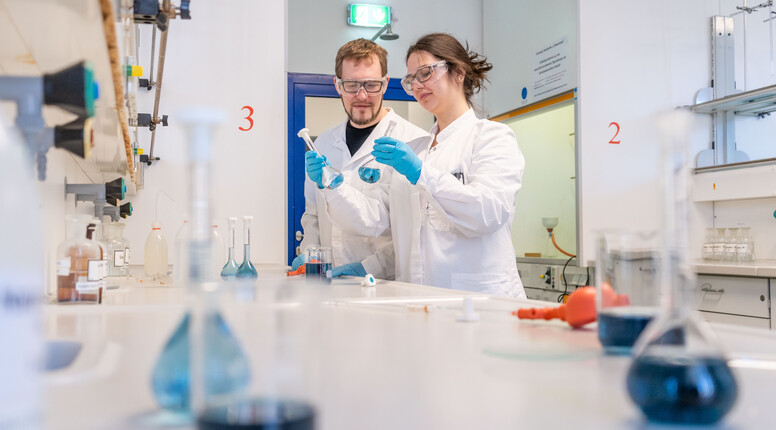Sustainable Chemistry and Renewable Energy
1.320,00 €
The course provides an overview of the current status of the energy transition (Energiewende) in Germany and which targets have been defined and have been met so far and still need to be met. The course aims to shed light on the energy system transformation from the point of view of energy economic and energy policy developments and goals. In the first part of the course, the objectives of the energy system transformation and the goals that have been achieved will be examined. In the second part of the course, special attention is paid to the energy economy and the role of renewable energies in the energy system transformation. In particular, the opportunities and risks of a full supply of renewable energies are examined.
| Ist zugangsbeschränkt: | Ja |
|---|---|
| Voraussetzung - Hochschulzugangsberechtigung: | Nicht erforderlich |
| Voraussetzung einjährige Berufserfahrung: | Erforderlich |
| Voraussetzungen - Sprache: | Englisch: TOEFL Internet (92 Pkt); IELTS (Acad. Level 6.5 Pkt); CAE/CPE (Level C1, Grade B); TOEIC (720 Pkt listening/reading, 310 Pkt speaking/writing); ggf. Einzelfallprüfung |
| Voraussetzungen - Fachkenntnisse: | Kenntnisse Chemie, Biologie, Umwelt |
| Weitere Voraussetzungen |
1) Training as a chemical-technical assistant or pharmaceutical-technical assistant OR 2) B.Sc. in Chemistry, Pharmacy or similar
|
| Themenfeld: | Ingenieur- & Naturwissenschaften, Nachhaltigkeit, Energie & Umwelt |
| Veranstaltungsformat: | Online |
| Niveau: | Master |
| Lehrsprache: | englisch |
| Studiengang |
Sustainable Chemistry
Zur Studiengangs-Webseite
|
| Anzahl der CP / ECTS: | 5 |
| Workload - Kontaktzeit (in Stunden): | 8 |
| Workload - Angeleitete Selbstlernzeit (in Stunden): | 117 |
| Prüfung: | kurseigene Prüfung |
| Prüfungsformat: | Portfolio |
| weiteres Prüfungsformat: | keine weitere Prüfung |
| Qualifikationsziele |
You will acquire substantive knowledge about:
|

